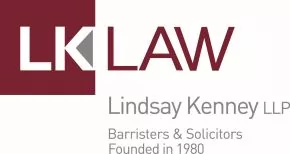Recent amendments to the Employment Standards Act of British Columbia were enacted on March 23, 2020 to help employees and employers during the coronavirus pandemic.
COVID-19 Related Leave
The BC government enacted an emergency amendment to the Employment Standards Act that provides an unpaid leave of absence for employees who are unable to work for reasons related to the coronavirus.
This amendment will apply to the following:
- Employees who were diagnosed with COVID-19 and are acting in accordance with the advice from a medical practitioner (doctors, medical health officer, nurse practitioner or registered nurse).
- Employees who are in quarantine or self-isolation pursuant to a provincial order, an order made under the Quarantine Act, the guidelines of the BC Centre for Disease Control or the Public Health Agency of Canada.
- Employees who are providing care to a child or a dependent adult.
- Employees who are directed by their employer not to return to work due to concerns about COVID-19 exposure.
- Employees who are outside of British Columbia and cannot return to the province because of border and/or travel restrictions.
This leave is retroactive to January 27, 2020. Therefore, it will apply to eligible employees who were terminated prior to the enactment of the COVID-19 Related Leave. While the employee is away from the office, their absence will be deemed a leave of absence until re-employment.
In addition, employees are entitled to take this leave for as long as they continue to meet the eligible criteria above.
Update for Employers: Employers now have a statutory right under this amendment to mandate that employees cannot return to work when the employer has safety concerns about the employee's potential COVID-19 exposure to other employees. Employers are not allowed to request a medical note for this leave; however, they may request reasonable sufficient proof that the employee is eligible for the duration of their leave.
Update for Employees: This amendment will provide employees with job protection for COVID-19 absences based on the factors above. An employee is entitled to subsequent employment in the same or comparable position with their employer once the COVID-19 Related Leave ends
Illness or Injury Leave
The second amendment to the Employment Standards Act provides three days of unpaid leave for an illness or injury to an employee on an annual basis. For this amendment, there is no requirement that the illness or injury be related to COVID-19. All employees are eligible after ninety (90) consecutive days of employment. An employer may request that an employee subsequently provide reasonably sufficient proof of the illness or injury.
Layoffs and Termination of Employment for Non-Union Employees
Although these new amendments specifically address certain rights and responsibilities for employers and employees related to COVID-19, these amendments do not provide relief to companies facing financial hardship due to the pandemic. There is now an unprecedented number of companies being forced to layoff their workers due to government restrictions, reduced work, and social isolation policies following the British Columbia Government's recent state of emergency announcement on March 17, 2020.
Employers must be aware that a layoff due to a shortage of work may still be deemed a termination of employment (the employee was fired) resulting in pay in lieu of notice (severance pay) to the employee. There are exemptions but they are limited and strictly enforced. Such exemptions would include a written employment contract that provides for temporary layoffs or if the employee agrees to the temporary layoff. Even then, courts have held many of these employment contracts are invalid because the contract fails to comply with the appropriate formalities or is vague and unenforceable.
Section 63 of the Employment Standards Act provides for notice of termination or termination pay for employees, but this Act only sets out the minimum requirements for notice of termination or severance pay. If you do not have an employment contract that specifically limits the employee's notice to the statutory minimum requirements under the Employment Standards Act, then common law may apply. Common law generally provides significantly more notice (or severance pay) then the amount provided under this Act.
Moreover, a shortage of work will not be considered a termination for just cause of an employee.
The government's response to COVID – 19 and employment law continue to change rapidly. Despite these amendments, employers may still be liable for wrongful/constructive dismissal and other liabilities associated with employee layoffs. Therefore, we urge you to contact an LK employment lawyer immediately if you have any employment questions, particularly before you begin any layoffs of your employees or if you were terminated without any severance pay.
Our employment and labour lawyers have a wealth of experience and will provide employment law advice on a broad spectrum of employment law and human resource issues. We advise employers and employees on all aspects of employment law matters and we are here to help you in these difficult and unprecedented times.
About Mackrell International – Canada - Lindsay Kenney LLP is a full service business law firm with offices in Vancouver and Langley, BC and a member of Mackrell International. Mackrell International – Canada is comprised of four independent law firms in Alberta, British Columbia, Ontario and Quebec. Each firm is regionally based and well-connected in our communities, an advantage shared with our clients. With close relations amongst our Canadian member firms, we are committed to working with clients who have legal needs in multiple jurisdictions within Canada.
This article is intended to be an overview and is for informational purposes only.

